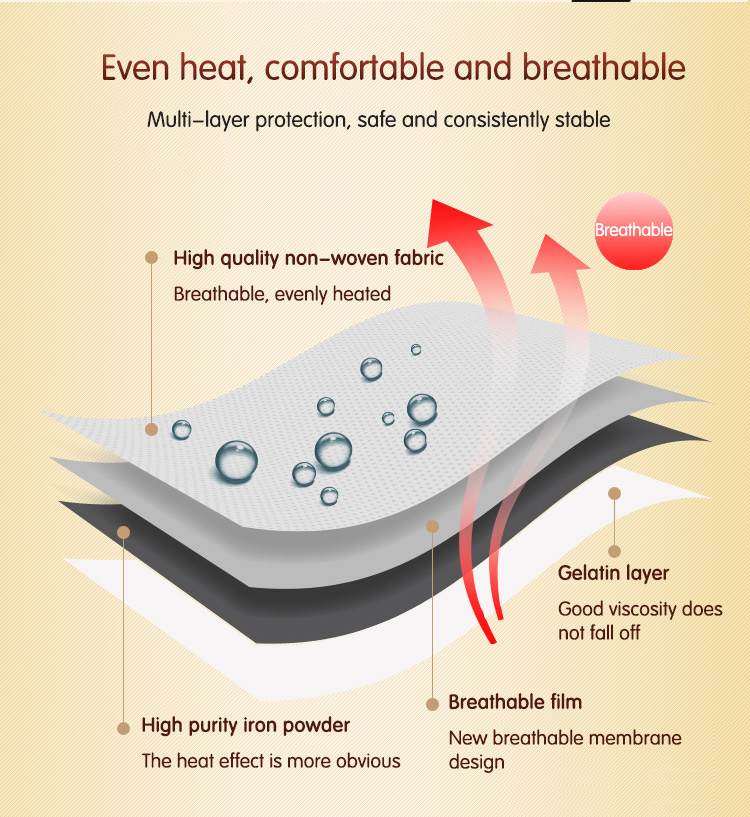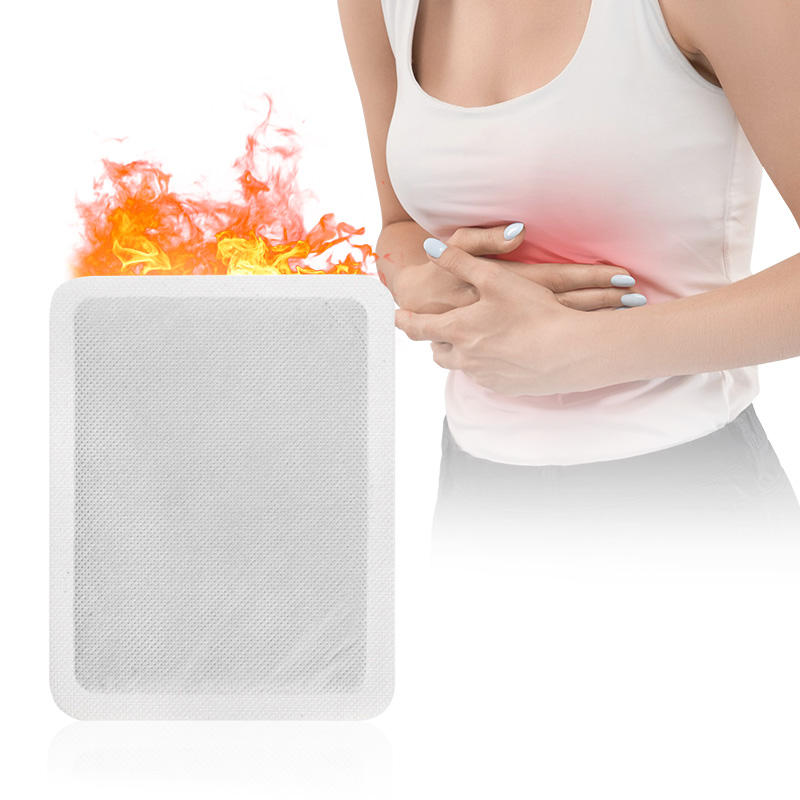How Can a Menstrual Heat Pad OEM Help with Regulatory Compliance?
In the highly regulated health and wellness industry, ensuring that products meet all necessary safety and regulatory standards is crucial. When it comes to menstrual heat pads, the situation is no different. Partnering with a Menstrual Heat Pad OEM (Original Equipment Manufacturer) can play a pivotal role in helping businesses navigate the complex world of regulatory compliance. Whether you’re working with a Menstrual Heat Pad Manufacturer to develop a Custom Menstrual Heat Pad or are launching a Private Label Menstrual Heat Pad, regulatory compliance is an essential factor that can determine a product’s success in the market.
This article explores how a Menstrual Heat Pad OEM can assist businesses in meeting regulatory requirements and ensure that their products are compliant with national and international standards. We will also cover why working with a trusted Menstrual Heat Pad Supplier can give businesses peace of mind when bringing new products to market.

1. Understanding Regulatory Requirements for Menstrual Heat Pads
Before diving into how an OEM can help, it’s important to understand what regulatory compliance means in the context of menstrual heat pads. Menstrual heat pads are typically classified as medical devices or therapeutic products in many regions, meaning they are subject to stringent safety and performance standards.
A. FDA Regulations (USA)
In the United States, menstrual heat pads fall under the jurisdiction of the Food and Drug Administration (FDA). The FDA requires that manufacturers follow specific guidelines to ensure product safety. This includes clinical testing, material safety, labeling, and proper documentation. A Menstrual Heat Pad Manufacturer working with an OEM must ensure that all products meet these criteria to avoid recalls, penalties, or legal issues.
B. CE Marking (Europe)
In Europe, menstrual heat pads must comply with the CE marking, which indicates that the product meets all health, safety, and environmental protection standards. The CE marking process involves rigorous testing and certification procedures, which can be daunting for businesses trying to launch Custom Menstrual Heat Pads. A trusted Menstrual Heat Pad OEM can streamline this process by helping brands meet the necessary regulations.
C. Other Regional Standards
Different countries have their own regulatory requirements for menstrual heat pads. For instance, Japan’s PMDA (Pharmaceuticals and Medical Devices Agency) has strict guidelines for product safety and effectiveness, while China’s NMPA (National Medical Products Administration) has stringent labeling and testing requirements. Working with a global Menstrual Heat Pad Supplier who understands these various regulations is key to avoiding compliance issues and ensuring product success.
2. How a Menstrual Heat Pad OEM Assists with Regulatory Compliance
Navigating the complex world of regulatory compliance can be overwhelming for businesses, especially those new to the health and wellness space. This is where a Menstrual Heat Pad OEM comes in. An OEM that specializes in menstrual heat pads will have the knowledge and experience to guide you through the regulatory landscape, from initial product design to market launch.
A. Expertise in Compliance Standards
A trusted Menstrual Heat Pad OEM will have a deep understanding of the regulatory requirements in various markets, ensuring that your product is developed and manufactured in line with local and international standards. Whether it’s adhering to FDA regulations in the U.S. or CE marking in Europe, the OEM will ensure that your product meets the necessary safety and quality benchmarks.
By working with an experienced Menstrual Heat Pad Manufacturer, businesses can benefit from their knowledge of compliance standards for materials, heat settings, and product safety. This reduces the risk of regulatory roadblocks and ensures a smoother path to market.
B. Documentation and Testing Support
Regulatory compliance involves meticulous documentation and testing to prove that a product is safe and effective. This process can be time-consuming and costly, but an OEM can handle these tasks on your behalf. Menstrual Heat Pad Suppliers typically offer comprehensive testing services, including product durability, material safety, and heating consistency tests.
For example, a Custom Menstrual Heat Pad developed by an OEM will need to undergo testing for skin safety, ensuring that the heat level is consistent and does not cause burns or discomfort. The OEM can provide the necessary documentation to prove compliance with regulatory bodies, saving businesses time and effort.
C. Manufacturing According to Standards
A Menstrual Heat Pad OEM is equipped to manufacture products according to strict regulatory standards. This includes ensuring that the production process follows Good Manufacturing Practices (GMP) and other industry certifications. A Private Label Menstrual Heat Pad developed by an OEM will meet all required safety and performance benchmarks, reducing the risk of product recalls or consumer complaints.
Additionally, an OEM can assist in ensuring that the product's packaging complies with labeling regulations. This includes displaying the correct usage instructions, warnings, and certifications required by different regulatory bodies. Ensuring accurate labeling not only helps with compliance but also builds trust with consumers who rely on the product for menstrual pain relief.
D. Support in International Markets
For businesses aiming to expand their Custom Menstrual Heat Pad to international markets, regulatory compliance becomes even more challenging. Each country has different standards, testing requirements, and documentation needs. A global Menstrual Heat Pad Supplier with experience in international regulations can be invaluable in ensuring that your product meets the necessary guidelines for each market.
The OEM can help you understand the specific requirements of various countries and ensure that your product complies with those standards. Whether it’s securing an FDA 510(k) clearance for the U.S. market or obtaining CE certification for Europe, the OEM will guide you through the process.
3. Benefits of Working with a Menstrual Heat Pad OEM for Compliance
Choosing the right Menstrual Heat Pad OEM can provide several key benefits when it comes to regulatory compliance.
A. Reduced Risk of Non-Compliance
Non-compliance with regulatory standards can lead to significant financial losses, product recalls, and damage to a brand’s reputation. By partnering with an experienced Menstrual Heat Pad OEM, businesses can mitigate these risks. The OEM will ensure that all necessary regulations are met, protecting your brand from potential legal issues.
B. Faster Time to Market
Navigating the regulatory landscape on your own can lead to delays, especially if your business is unfamiliar with the specific requirements for menstrual heat pads. An OEM with expertise in regulatory compliance can help you get your product to market faster. Their knowledge of the necessary documentation, testing, and certification processes ensures a more efficient route to product approval.
C. Cost Savings
Attempting to handle regulatory compliance internally can be expensive, particularly if your team lacks the necessary expertise. Mistakes can lead to costly re-testing, product redesigns, or even legal fees. Partnering with a Menstrual Heat Pad Manufacturer who understands compliance reduces these risks and can save your business significant costs in the long run.
4. The Role of Custom Menstrual Heat Pads in Regulatory Compliance
Customizing a menstrual heat pad doesn’t mean sacrificing regulatory compliance. In fact, an OEM can help ensure that your Custom Menstrual Heat Pad not only meets the needs of your target market but also complies with all relevant safety and regulatory standards.
A. Tailored to Compliance Standards
When developing a Custom Menstrual Heat Pad, the OEM will work closely with you to ensure that any customizations, such as heat settings or materials, comply with regulatory guidelines. This means that your product will not only be unique but also safe and effective for consumers.
B. Testing and Certification for Custom Features
If your Custom Menstrual Heat Pad includes unique features, such as additional ingredients for aromatherapy or advanced heating mechanisms, the OEM will ensure that these elements are tested and certified according to the necessary standards. This guarantees that even highly customized products meet all safety and performance requirements.
Conclusion
Partnering with a Menstrual Heat Pad OEM is a smart choice for businesses looking to ensure regulatory compliance. From understanding local and international standards to providing testing and documentation support, an OEM can help your brand navigate the complex world of regulatory requirements. Whether you are developing a Custom Menstrual Heat Pad or launching a Private Label Menstrual Heat Pad, working with an experienced Menstrual Heat Pad Manufacturer ensures that your product meets all necessary safety and performance standards, protecting your brand and consumers.
Related Questions and Answers:
1. What regulations apply to menstrual heat pads in the U.S.?
In the U.S., menstrual heat pads are regulated by the FDA, which requires testing for safety, proper labeling, and adherence to product standards.
2. How can an OEM help with FDA approval?
An OEM can assist with product testing, documentation, and submitting the necessary paperwork to ensure compliance with FDA requirements.
3. What are the benefits of CE marking for menstrual heat pads?
CE marking indicates that a product meets European health, safety, and environmental standards, allowing it to be sold across the European Economic Area.
4. Can a Custom Menstrual Heat Pad be compliant with international regulations?
Yes, a Menstrual Heat Pad OEM can help ensure that even customized products meet the regulatory requirements of different countries.
5. How does an OEM ensure product safety?
An OEM ensures product safety by conducting rigorous testing, adhering to GMP standards, and providing detailed documentation to prove regulatory compliance.






